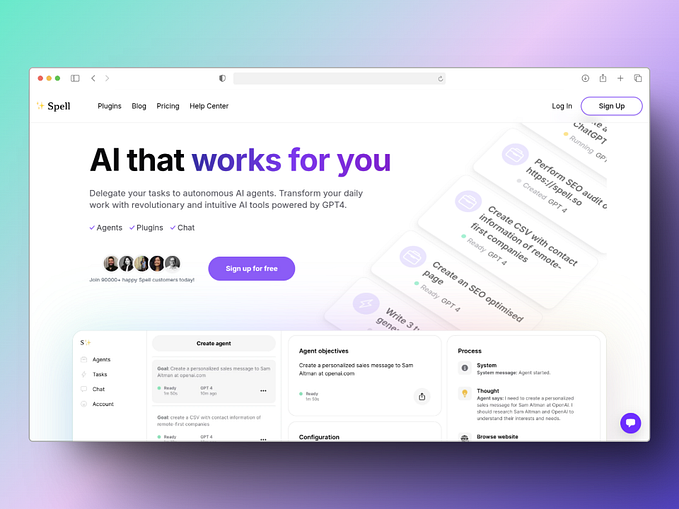
Homo Cadoo
Online Incentives, Digital Cash Rewards, and the Future of Humanity
Incentives (positive and negative) are our species’ defining technology.
Apes communicate and cooperate socially. They chit chat and they nit pick. They use tools. But they don’t set rules to reward or punish future behavior. They don’t incentivize each other.
Homo sapiens invented gods and incentives simultaneously: if this, then gods pleased and reward, else gods displeased and punishment.
Human laws strengthened superstitious commandments into more reliable incentives. Private contracts brought granularity and specificity to the legal quid pro quo.
If steal, god punish=> If steal & found guilty, go to jail => If fail to perform as contracted, then legally enforceable remedy.

Commandments to Contracts to Cadoos.
Human civilization can be seen as layers of increasingly complex incentive schemes with increasingly quantifiable rewards.
We went from nomadic hunter gatherers to agricultural settlements to industrial society to the information age, mostly thanks to rewards/punishments for certain behaviors becoming increasingly predictable via liquid and fungible money.
Until very recently, incentives worked to solve homo sapiens greatest problems: hunger (scarcity of food), illness (scarcity of medicine and medical knowledge), and war (scarcity of trade vs. winner-take-all).
They’ve worked too well when combined with other clever human inventions, principally industrial food production, digital entertainment, and global markets for arms manufacturers.
We now live in a world of obese children and adults, costly but increasingly worthless education credentials, and central bankers debasing currency to buy national debt used to fund international aggression that, in turn, drives ceaseless global demand for the purchase of war material.
Get bison, eat/procreate well => Farm land, eat/procreate well => Acquire credential, eat/procreate well => Learn useful skills, be healthy & fulfilled & teach same to children (i.e., eat/procreate well).

Happily, incentives can rescue us once more when combined with the formidable reach of the internet, the powerful devices that most people carry around all day long, and the boundless creativity of entrepreneurs developing apps, services, and decentralized protocols for both.
(As for debasement of national money by short-sighted bureaucrats, bitcoin’s decentralized sound money alternative holds the promise of keeping central bankers honest, i.e. if debase money, then human and financial capital flight).

The logical counter to ubiquitous cheap, delicious calories is to make rewards for physical activity, healthy weight and diet, and health education just as ubiquitous and easy to create.
Health insurance companies will support this sort of system out of pecuniary interest, but so should anyone with an overweight child, friend, colleague, or employee.
Being a fat kid makes everything more difficult and being an overweight adult lowers productivity, happiness, and earning power. The only thing obesity increases is the likelihood of serious illness and early death. The COVID pandemic was mostly a fatdemic, as many have been afraid to comment.

Our bodies were built to be lean and active, not stuffed and shambling. All the ancient human incentives were contingent on an active lifestyle. Only very recently has cheap food, sedentary work, and engrossing digital entertainment (including online porn) together overwhelmed those ancient action/reward feedback loops.
The average person needs a nudge in the other direction, an incentive to resist temptation in favor of a healthy active lifestyle. And there are lots of people and institutions with a emotional or economic interest in doing that nudging.
If active, then eat/procreate well => If inactive, then still eat/watch porn (satisfies procreation circuitry) => If active, then happier/healthier/more productive/lower morbidity + reward.

The ancient incentives to learn valuable skills have also become obsolete and ineffective.
Parents and society want children to learn so they can be productive, earn, contribute, and be self-sufficient. But the credentials issued by institutions of learning have, much like nation-state money, been debased to the point that they no longer can be converted into post-grad value equivalent to their cost.
Degrees from most colleges are not worth the tuition required to attain them, and even professional degrees are increasingly bad investments relative to the opportunity costs of more efficient time/effort monetization thanks to the internet.
(One of the many things I admire about my Cadoo co-founder, CryptoColm is that he is a college opt-out and a Praxis graduate).
The learning resources of all the greatest universities combined pale in comparison to the Internet’s wealth of courses, teachers, and forums dedicated to any topic.
If credential, then eat/procreate well => If follow passion to learn valuable skills, then happy path to wealth creation that can be passed on to kids (i.e., eat/procreate well) + reward.

Instead of the stress and distraction of college admission, parents will increasingly incentivize their children to learn skills that are objectively valued by the market, rather than playing a rigged lottery to earn an overpriced credential.
Parent-to-child allowance payments in the U.S. reached $41 billion in 2018, with 86% contingent on task-completion. In the near future, those payments will be contingent on completing goals on learning platforms like Duolingo, Mimo, and Codeacademy. In the near future, those same parents will program bonuses for limiting screen time and for completing comprehension quizzes for books, articles, podcasts, and videos.
Entrusting your child’s education to your local primary school or even Yale will very soon seem as bad an idea as entrusting his or her diet to McDonalds.
Instead of paying eye-popping tuition to colleges, families will reward young people for learning what is objectively valued in the market, whether that’s Chinese, Python, or absorbing the books of Taleb, the lectures of Feynman, the essays of Paul Graham, or the tweets of Naval.
In this way, apps, platforms, and online content can be leveraged to motivate children and adults follow their passions to wealth creation ( Naval’s framework on this is illuminating).
Instead of a credentialed class of Intellectuals Yet Idiots, homo sapiens greatest invention (incentives) combined with our second greatest invention (the internet) will result in happy, healthy wealth creators.
The age of Homo cadoo is upon us.

Our vision for Cadoo is to empower everyone to be like Satoshi Nakamoto & Elon Musk — two people who followed their passions to change the world and have created immense wealth for themselves and everyone who believed in them.
Originally published at https://medium.com on December 11, 2019.









